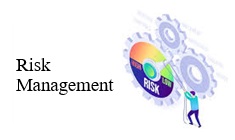

Tap on me to go to price panel
It is also possible to get a selection of different financial products with a single purchase. Normally, buying a large amount of different stocks requires a sizeable budget and would be time-consuming. However, products such as ETFs make it possible to do this in a simple and cost friendly manner. An ETF, or tracker as they are commonly called, is a passively managed fund which looks to match its return to the underlying basket of products. The underlying assets of a tracker could be an index, such as the S&P 500. They can also be specialized with respect to other factors, including region or sector. Some examples of this would be a tracker of European firms or one with stocks from agricultural companies. The institution issuing the fund will charge a fee, often between 0.10% - 1.00% for this service. These costs are typically included in the price of the product itself. CF Banque has majour 9 foreign currencies. All transactions are excuted by these currencies plus the demostic currency for our branches around the world










We process the majour currencies to service our client’s international ambitions
Payments Countries/Territories: 160 Markets
We enable payments to 160 countries/territories connecting our clients across the globe


Ms. Jacqueline Guillaume said "CF Banque has developed integrated solutions that meet client needs and provide a seamless FX payments journey. Payments are crucial for business growth. Our solutions deliver for our clients whilst minimising complexity."

Make payments abroad with real-time rates, open a wallet to pay like a local or hold currencies in Foreign Currency Accounts

Receive international payments into your domestic account or open a wallet or a Foreign Currency Account to manage your receivables

Explore FX hedging and protect against FX movements for future-dated payments or receipts

Integrate with our FX APIs to streamline processes and open up to new markets more easily.

Discover tailor-made FX solutions with our international network of experts

is the process of managing exposure to international currencies. It involves understanding how different currencies move in relation to one another and taking action to minimise the impact of exchange rate fluctuations on business operations.
Increasingly, many businesses have dealings in foreign currencies and, unless exchange rates are fixed with respect to one another, this introduces risk. There are three main types of currency risk as detailed below.
Economic risk: the source of economic risk is the change in the competitive strength of imports and exports. For example, if a company is exporting (let’s say from the UK to a eurozone country) and the euro weakens from say €/£1.1 to €/£1.3 (getting more euros per pound sterling implies that the euro is less valuable, so weaker) any exports from the UK will be more expensive when priced in euros. So goods where the UK price is £100 will cost €130 instead of €110, making those goods less competitive in the European market.
Similarly, goods imported from Europe will be cheaper in sterling than they had been, so those goods will have become more competitive in the UK market. Note that a company can, therefore, experience economic risk even if it has no overt dealings with overseas countries. If competing imports could become cheaper you are suffering risk arising from currency rate movements.
Translation risk: this affects companies with foreign subsidiaries. If the subsidiary is in a country whose currency weakens, the subsidiary’s assets will be less valuable in the consolidated accounts. Usually, this effect is of little real importance to the holding company because it does not affect its day-to-day cash flows. However, it would be important if the holding company wanted to sell the subsidiary and remit the proceeds. It also becomes important if the subsidiary pays dividends. However, the term ‘translation risk’ is usually reserved for consolidation effects.
Transaction risk: this arises when a company is importing or exporting. If the exchange rate moves between agreeing the contract in a foreign currency and paying or receiving the cash, the amount of home currency paid or received will alter, making those future cash flows uncertain. For example, in June a UK company agrees to sell an export to Australia for 100,000 Australian $ (A$), payable in three months. The exchange rate at the date of the contract is A$/£1.80 so the company is expecting to receive 100,000/1.8 = £55,556. If, however, the A$ weakened over the three months to become worth only A$/£2.00, then the amount received would be worth only £50,000.
Of course, if the A$ strengthened over the three months, more than £55,556 would be received.
It is important to note that transaction risk management is not mainly concerned with achieving the most favourable cash flow: it is mainly aimed at achieving a definite cash flow. Only then can proper planning be undertaken.

Currency hedging is a strategy that is used to eliminate foreign exchange currency risk while doing cross-border business.
Effective currency hedging strategies include forward contracts, futures, swaps, options, and hedged foreign bond funds.
General hedging guidelines emphasize understanding risks, setting clear objectives, and regular review for optimal risk management.
While Insurance is a sure way of providing you with an extra layer of protection from any unforeseen event, currency hedging is an attempt to minimize the impact of foreign currency risk on investment returns.
If you invest or engage in business internationally, you must explore currency hedging strategies. To hedge an investment, investment managers need to set up a related currency investment strategy to offset changes in the value of foreign currency. Simply put, currency hedging reduces the risk of an investment due to fluctuations in the foreign exchange (FX) rate.
Currency hedging involves using financial instruments to counteract potential losses from the rate changes. It is used to lower the risk of fluctuating FX rates. For this, the company creates a forward contract with an investment dealer to sell off currency at a future date at today’s FX rate.
Hedging currency risk aims to reduce the unpredictability of equity investments and provide a measure of risk control by enabling investors to isolate currency risk from their equity asset allocation. Before hedging currency risk, companies need to determine the degree of forex risk they can take.
When companies conduct business across borders, they deal in foreign currencies. This makes them prone to forex risk when they exchange foreign currencies for home currencies. This is exactly where foreign exchange risk awareness comes into play.
For example, let’s say a family from Mexico planning a trip to the US. They need to exchange their Pesos for US dollars to cover expenses. However, if the Peso weakens against the dollar during their trip, they may end up spending more than budgeted. Hedging currency risk helps them secure a fixed exchange rate in advance, shielding them from unexpected fluctuations.
Foreign currency hedging involves employing either a cash flow hedge or a fair value hedge. Fair value hedges aim to minimize the impact of fluctuations in asset fair market values. On the other hand, cash flow hedges help manage risks stemming from sudden changes in asset or liability cash flows.